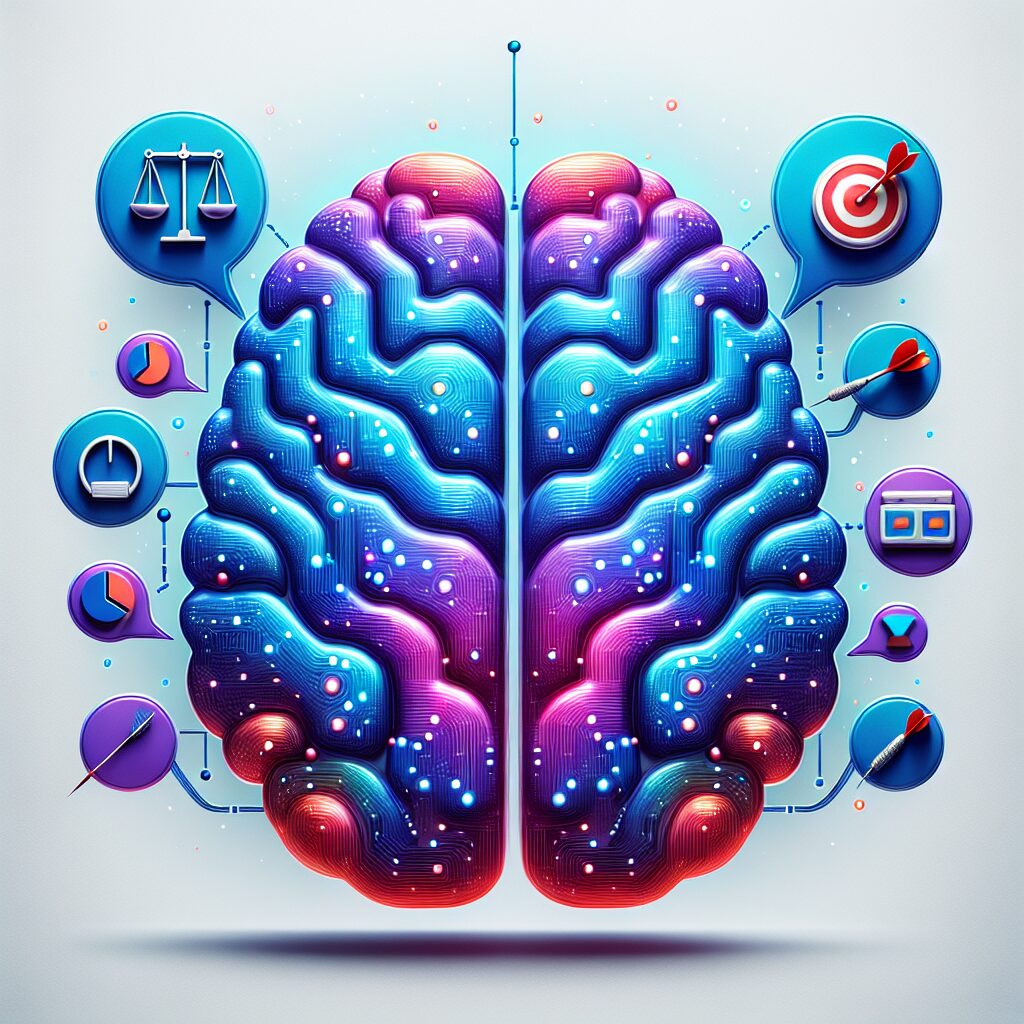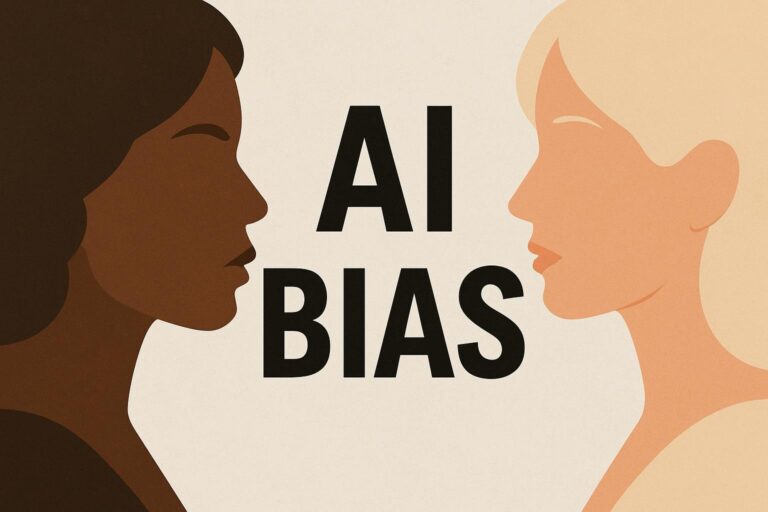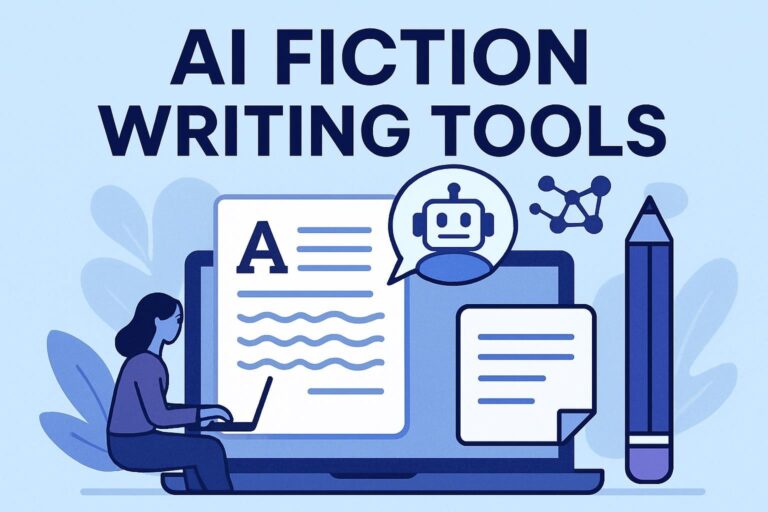Understanding biases in AI-Generated Content

AI-Generated Content
AI personalization is revolutionizing the best way in which content material materials is tailored to specific particular person preferences but behaviors. By leveraging machine learning algorithms, AI can analyze large portions of info to predict what type of content material materials will resonate with a specific viewers. However, it’s important to take care of biases in AI, as these can have an effect on the accuracy but fairness of personalized options.
This not solely improves particular person engagement by delivering further associated content material materials however in addition will improve the effectivity of content material materials creation by automating the personalization course of.
As a finish end result, clients often are inclined to absolutely, honestly really feel linked to the content material materials they encounter, because therefore it shows their pursuits but needs with uncanny accuracy.
The speedy enchancment of artificial intelligence AI has revolutionized a large number of elements of our on an everyday foundation lives, from digital assistants but advice packages to content material materials supplies creation but decision-making processes.
Nonetheless, as AI turns into more and more extra built-in in these areas, it’s necessary to care for a big concern: bias in AI-generated content material materials supplies. Understanding but mitigating this bias is crucial to creating positive equity, accuracy, but inclusivity in AI capabilities.
What’s bias in AI?

Bias in AI refers to systematic but repeatable errors in a laptop system that create unfair outcomes, much like privileging one arbitrary group of shoppers over others.
This can occur by technique of the data that AI methods are expert on, which may comprise historic but social prejudices, but by technique of the design of the AI system itself, which may inadvertently favor positive patterns of information.
It is crucial to acknowledge that these biases can have necessary implications, beginning from perpetuating stereotypes to affecting very important alternatives in healthcare, finance, but laws enforcement.
Bias in AI refers once more to the systematic but unfair discrimination that arises when AI packages produce outcomes that revenue but disadvantage positive groups of individuals.
This bias can manifest in numerous kinds, paying homage to racial, gender, but cultural biases. The basic causes of AI bias usually lie contained in the knowledge used to train these fashions, in addition to contained in the algorithms themselves.
Sources of Bias
1: Information Bias: Data bias occurs when the datasets used to educate AI methods often will not be advisor of the broader inhabitants but the exact context in which the AI will operate. This may result in skewed outcomes but discriminatory outcomes when the AI makes alternatives but personalized options.
For event, if an AI system is expert completely on information from one demographic group, it would possibly perform poorly for individuals exterior that group, reinforcing current disparities but doubtlessly inflicting harm.
AI fashions are taught from monumental datasets, but if these datasets comprise biased information, the AI system is inclined to repeat these biases. For event, if a dataset used to train a language mannequin primarily consists of textual content material materials from a chosen demographic, the mannequin could not precisely characterize fully completely different teams’ views.
2: Algorithmic Bias: Algorithmic bias can manifest in pretty much numerous varieties but is generally a outcomes of underlying assumptions but simplifications contained in the AI’s decision-making processes. This type of bias occurs when an algorithm produces systematically prejudiced outcomes as a consequence of misguided assumptions in the machine learning course of.
For occasion, if an AI is expert to acknowledge patterns in information that are not advisor of the entire spectrum of a chosen space, it might end result in discriminatory outcomes, much like favoring one group of shoppers over one different when delivering personalized content material materials but options.
Bias can additionally come up from the algorithms used to course of but interpret knowledge. Algorithms would possibly inadvertently prioritize optimistic selections over others, ensuing in skewed outcomes. This might happen if the algorithm is designed with out contemplating fairly a number of contexts but if it overgeneralizes from restricted knowledge.
3: Human Bias: To mitigate these issues, it’s — honestly important to implement oversight but regular evaluation of AI personalization methods. Developers must be vigilant in determining but correcting biases that can come up, guaranteeing that the algorithms are refined with a varied set of info inputs.
Moreover, transparency in how personalization algorithms carry out would possibly assist clients understand but perception the AI’s decision-making course of, in the finish ensuing in further equitable but appropriate personalization experiences.
AI packages are created but maintained by people, who would possibly unintentionally introduce their biases into the design but implementation of those packages. This might happen by subjective choices about which knowledge to embody, one of many easiest methods to label it, but which outcomes are deemed acceptable.
Implications of Biases in AI-Generated Content supplies

The presence of biases in AI-generated content material materials can have far-reaching implications, notably regarding personalization algorithms that kind specific particular person on-line experiences.
These biases may result in a reinforcement of stereotypes but a narrowing of the information supplied to clients, efficiently creating an echo chamber that limits publicity to pretty much numerous views.
Moreover, when personal information is used to tailor content material materials, there is, honestly a menace that delicate attributes may be inferred but exploited, elevating necessary privateness but ethical issues.
Bias in AI-generated content material materials supplies can have very important penalties. Inaccurate but unfair content material materials supplies would possibly reinforce stereotypes, marginalize positive communities, but worsen current inequalities. As an illustration, biased content material materials supplies advice algorithms might restrict prospects’ entry to fairly a number of views, but biased picture recognition packages might battle.
Addressing AI Bias
1: Numerous but advisor datasets: To efficiently mitigate AI bias, it’s — honestly important to utilize datasets that are every pretty much numerous but advisor of the worldwide inhabitants. This entails collectively with a selection of demographics, cultures, but languages to ensure that AI methods do not — honestly perpetuate current disparities.
Additionally, the data wants to be collected but labeled in an ethical technique, bearing in thoughts the privateness but consent of individuals whose knowledge is getting used. By prioritizing inclusivity in information assortment, AI might be expert to acknowledge but serve the needs of a broader spectrum of humanity, in the finish ensuing in further equitable outcomes.
To scale again bias in AI models, it’s important to train them on datasets that are inclusive but advisor. This implies incorporating knowledge from fairly plenty of — really demographics but contexts, providing an extra balanced but full perspective.
2: Transparency but accountability: Transparency but accountability are important components in the occasion but deployment of AI personalization utilized sciences. By guaranteeing that AI methods are clear, clients can understand how their information is getting used but the best way alternatives are made.
This diploma of readability is essential not simply for setting up perception between clients but AI methods however in addition for holding builders but firms accountable for the outcomes of their algorithms.
Moreover, when AI methods are accountable, it ensures that there are mechanisms in place for redress if the methods produce unfair but harmful outcomes.
Builders should goal for transparency in AI packages. This incorporates documenting knowledge sources, algorithms, but decision-making processes. Establishing accountability mechanisms would presumably help care for but rectify biases after they happen.
3: Equity in Algorithm Design: Ensuring equity in algorithm design is essential to foster inclusivity but fairness in AI personalization. Designers must be intentional about incorporating pretty much numerous datasets that replicate a massive spectrum of individuals, experiences, but contexts.
By doing but, they may mitigate the prospect of perpetuating current inequalities but as an various create methods that cater to the needs of a broader particular person base.
Moreover, widespread audits but updates to these algorithms are important to adapt to altering societal norms but values, sustaining the relevance but fairness of personalized AI interactions.
Designing algorithms with equity in ideas is crucial. This accommodates utilizing equity constraints, adversarial instructing, but bias detection units to find out but mitigate bias in AI fashions.
4: Steady Monitoring but Analysis: To be sure that AI personalization stays every environment friendly but ethical, regular monitoring but evaluation are very important.
By implementing widespread assessments, organizations can observe the effectivity of AI methods in opposition to established fairness metrics, adjusting algorithms as important to proper any deviations from desired outcomes.
This vigilant oversight not solely helps in sustaining the integrity of personalization efforts however in addition builds perception amongst clients by demonstrating a dedication to accountable AI practices.
Bias in AI is an ongoing disadvantage fairly than a one-time state of affairs. Common monitoring but analysis of AI packages would presumably help detect but mitigate biases as they arrive up, guaranteeing equity but accuracy over time.
Conclusion
To efficiently take care of these challenges, it’s — honestly necessary to find out a framework for AI personalization that prioritizes ethical considerations. This entails not solely the implementation of clear algorithms however in addition the inclusion of pretty much numerous information items to educate these methods.
By doing but, AI might be fine-tuned to cater to specific particular person preferences whereas safeguarding in opposition to discriminatory practices. Furthermore, collaborating with stakeholders from pretty much numerous backgrounds can current invaluable insights that help kind AI personalization in a signifies that respects but understands the nuances of varied particular person groups.
As AI performs a rising carry out in content material materials supplies creation but decision-making, addressing bias is crucial for rising moral but dependable AI systems.
By figuring out the sources of bias but understanding its outcomes but by implementing methods to cut once more on it, we are, honestly in a place to ensure that AI content material materials supplies is reliable, proper, but inclusive, benefiting everybody.



